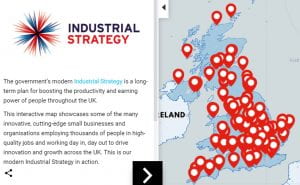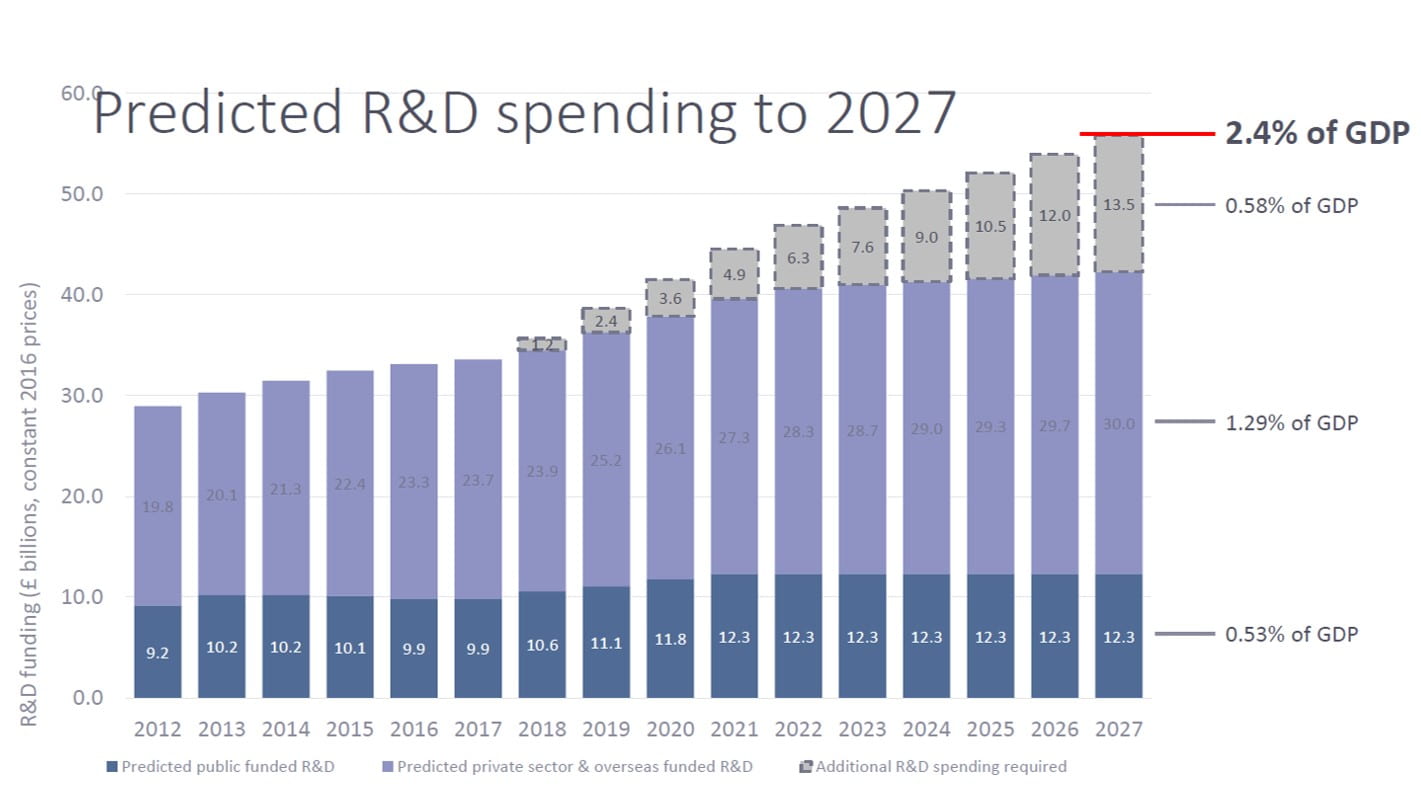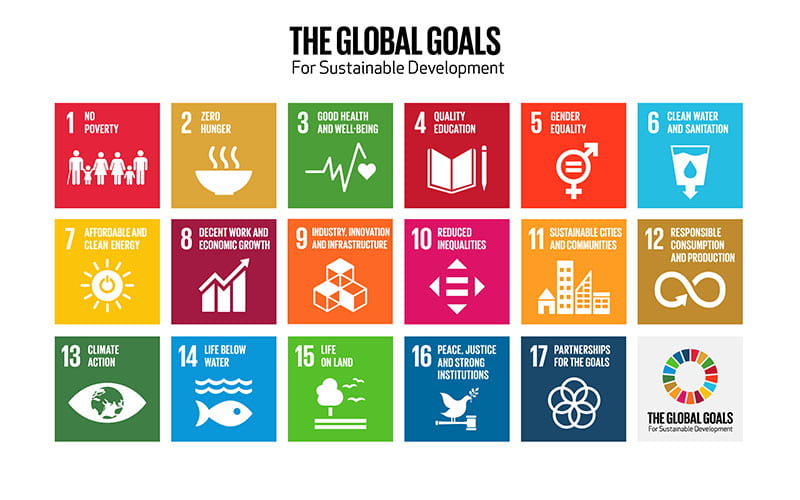The increasing importance of collaboration between universities and external partners
By ucypcac, on 4 June 2019
Perhaps one of the biggest challenges that leaders and policy makers face today is to achieve sustainable socioeconomic development in the coming decades. By ‘sustainable,’ we mean growth that brings benefits and opportunities equally across all segments of society and does not come at the cost of jeopardising the environment.
The recent climate protests in London – and before that the global ‘occupy’ movement – have shown the depth of feeling around these issues.
Yet there needn’t be a dichotomy between economic growth and societal and environmental preservation. Leading economists, such as last year’s Nobel laureates William Nordhaus and Paul Romer, have shown that both can be achieved and even become mutually dependent.
This will not happen with a ‘business as usual’ approach though. It will require a significant increase in research and development (R&D) – with universities, industry, third sector and government working together to solve complex social, environmental and technological challenges.
UCL Innovation & Enterprise has responded to this challenge through the creation of the Business & Innovation Partnerships (BIP) team, which helps academics collaborate with some of the world’s leading companies, as well SMEs, NGOs and charities.
Our BIP team is made up of specialists with academic and business backgrounds who understand both the research and economic landscapes – and crucially how to marry to the two successfully. The ultimate aim is to forge multifaceted, long-lasting partnerships, which can begin to address some of the complex societal and technological challenges of our times.
One initiative that the BIP team has been involved with, that exemplifies the sort of sustainable growth we might aim for in the future, is the Global Disability Innovation (GDI) Hub.
Assistive technology for the benefit of all
 Based at Here East, the GDI Hub is helping to accelerate the provision of assistive technologies to improve the lives of people with disabilities. It is formed of a research centre and a non-profit, community interest company (CIC). UCL Innovation & Enterprise helped to establish the CIC as well providing knowledge exchange funding and business advice – all of which helped ready the GDI for engagement with government and other funding partners.
Based at Here East, the GDI Hub is helping to accelerate the provision of assistive technologies to improve the lives of people with disabilities. It is formed of a research centre and a non-profit, community interest company (CIC). UCL Innovation & Enterprise helped to establish the CIC as well providing knowledge exchange funding and business advice – all of which helped ready the GDI for engagement with government and other funding partners.
In April, the GDI hub secured a £19.8 million grant from the UK Department for International Development (DFID) to test new approaches to assistive products and service design, as well as the markets which support their provision globally. Crucially, the DFID funding will be 100% matched by the private sector, country governments, academic institutions, NGOs and other partners.
The GDI has a major presence in Europe, Asia and Africa – with some particularly exciting projects in Kenya. While Kenya has a burgeoning tech sector, it risks leaving people with disabilities behind. Now a project called Motivation is aiming to develop the next generation of wheelchairs there.
Clearly, improving the lives of all people with disabilities is something we as a society should absolutely be striving to achieve under any circumstances. At the same time, this project has the added benefit of effectively creating new market sectors in many developing nations – stimulating local economies and also increasing overall productivity.
Green shoots of growth
 In the UK, the goal of creating sustainable and equitable economic growth is laid out in the Industrial Strategy, first published in 2017. It highlights four key Grand Challenges – Artificial Intelligence and data; Ageing society; Clean growth; and the Future of mobility – through which to focus R&D efforts.
In the UK, the goal of creating sustainable and equitable economic growth is laid out in the Industrial Strategy, first published in 2017. It highlights four key Grand Challenges – Artificial Intelligence and data; Ageing society; Clean growth; and the Future of mobility – through which to focus R&D efforts.
There are promising signs that the Industrial Strategy is stimulating activity in these areas. The Department for Business, Energy and Industrial Strategy (BEIS) recently published an online interactive map, plotting companies and projects that are answering the call of the Grand Challenges – featuring several from the UCL community.
For example, covering both ‘Clean growth’ and ‘Future mobility,’ UCL spinout Bramble Energy is bringing hydrogen fuel cell technology to the mainstream, ushering in a new era of truly sustainable power. Bramble’s use of printed circuit board (PCB) technology to form the structural parts of the fuel cell is driving down costs and leveraging existing manufacturing infrastructure for PCBs. Bramble is developing products and solutions for off-grid applications – both static and portable – including a range extender for electric vehicles.
 Addressing ‘AI and data’ and ‘Ageing society,’ is an inspiring start-up that was born out of the entrepreneurship programme run by UCL Innovation & Enterprise at the BaseKX incubator and startup space. Fintech company Kalgera has launched an app that uses neuroscience research and machine learning to detect subtle changes in financial behaviour associated with vulnerability to fraud – particularly among older people who are most at risk.
Addressing ‘AI and data’ and ‘Ageing society,’ is an inspiring start-up that was born out of the entrepreneurship programme run by UCL Innovation & Enterprise at the BaseKX incubator and startup space. Fintech company Kalgera has launched an app that uses neuroscience research and machine learning to detect subtle changes in financial behaviour associated with vulnerability to fraud – particularly among older people who are most at risk.
Challenges and opportunities ahead
As well as shaping these Grand Challenges, the Industrial Strategy encompasses a goal to increase research and development (R&D) spending in the UK from current levels of around 1.7% of total Gross Domestic Product (GDP), to 2.4% of GDP by 2027. That’s at least £13 billion per year extra in R&D spending by 2027.
How are we to achieve this R&D spending uplift and where exactly is it going to come from? With public R&D funding likely to remain static, part of the solution undoubtedly lies in collaboration and external partnerships.
Interestingly, in the UK, just 400 companies carry out three quarters of all business-funded R&D. This means that there’s a wealth of untapped potential in terms of companies that aren’t engaged in significant levels of R&D but could be with greater support from universities.
Importantly, there are significant mutual benefits for both parties in pursuing joint R&D activities and innovative partnerships.
For business, there is an opportunity to stay ahead of competitors in the sector by understanding and using new technologies – potentially even as a springboard into entirely new markets and sectors. Companies can also access expert academic research capabilities that are simply not available in-house and identify potential technology licencing and spinout acquisition targets. Ultimately this can achieve significant gains in productivity and profits.
For academics, (as I explored in my previous VP View) engaging externally and collaborating with companies and organisations outside of UCL can bring a multitude of benefits to core research and teaching activities.
Indeed, collaboration with external partners was a strong theme at the recent UCL Awards for Innovation and Enterprise earlier this week.
The award winners encompassed everything from joint approaches to drug discovery with a consortium of academic and pharmaceutical partners – to a project working with organisations and companies to improve services for people with hearing loss.
As we strive to develop a culture of innovation and enterprise across UCL, these Awards can provide examples to our students, staff, alumni and partners. If you’ve been inspired by any of them, either as an academic or potential external partner, I would encourage you to get in touch with our team at UCL Innovation & Enterprise to find out how we can help you.
 Close
Close






 Another example of external partnerships enhancing research comes from the lab of Professor Brad Love, who was approached about using Tesco’s loyalty card data to better understand why customers switch products. Human decision making of this kind is well understood in the lab environment. But analysis of Tesco’s real-world dataset of 280,000 anonymized individuals revealed some surprising findings, going against established thinking – for example suggesting that the very act of purchasing can make novel products more desirable. The project not only helped Tesco better understand consumer behaviour, it also led to a paper in Nature Human Behaviour and funded a PhD studentship.
Another example of external partnerships enhancing research comes from the lab of Professor Brad Love, who was approached about using Tesco’s loyalty card data to better understand why customers switch products. Human decision making of this kind is well understood in the lab environment. But analysis of Tesco’s real-world dataset of 280,000 anonymized individuals revealed some surprising findings, going against established thinking – for example suggesting that the very act of purchasing can make novel products more desirable. The project not only helped Tesco better understand consumer behaviour, it also led to a paper in Nature Human Behaviour and funded a PhD studentship.

